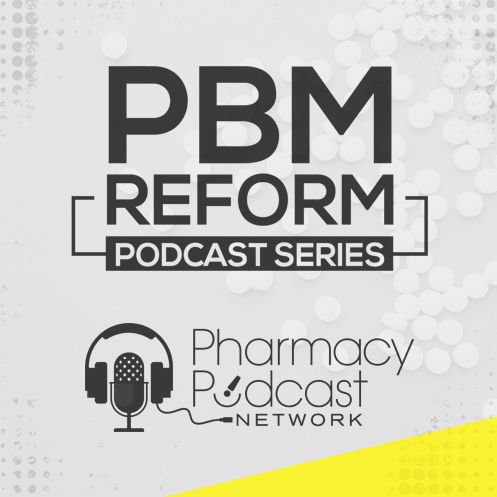
WELCOME TO THE
PHARMACY PODCAST NETWORK.
Exploring the Profession of Pharmacy through Audio
WE WORK WITH PRETTY AWESOME PEOPLE

THE PODCASTING LEADERS
OF PHARMACY
Pharmacy Podcast Network (PPN) is the world’s largest network of podcasts dedicated to the pharmacy profession and pharmaceutical industry insiders. Our content is about dynamic people in healthcare making a difference by delivering the best pharmacy care. Pharmacists are the cornerstone of healthcare, and the PPN reflects that.
From Community, LTC, Specialty Pharmacy to Drug Development, Government policy and Digital Health, we cover it all. Pharmacists are part of every aspect of healthcare and the PPN is building content to support these expanding roles.
Partner with us to connect with thousands of daily listeners and find the right pharmacist across various specialties and topics, ensuring your products and services resonate where it matters most.
We build strong audio brands through Pharmacists who see patients almost 9x more than primary care.
FEATURED SHOWS
Pharmacy Podcast Network is the world’s largest network of podcasts dedicated to the pharmacy professional and industry insiders leading with our hosts interviewing dynamic people in the pharmacy industry making a difference for our profession, customers, and patients.
Building supportive podcast and social media content for PR Communications, special events, and marketing campaigns is inside our DNA.
Reaching the Pharmacy Industry everyday through podcasting and social media, the PPN is ready to advance your mission and elevate your brand as we work TogetheRx to improve pharmacy care.

ASSOCIATIONS & INDUSTRY PARTNERS
The PPN is a Digital Health Publication and Content Developing partner to the Pharmaceutical industry focusing on Specialty medications, pharmacy business supportive technologies, and industry trends.
ALLIANCE PHARMACY COMPOUNDING (APC)
The Alliance for Pharmacy Compounding (APC) is the leading organization that advocates for and represents the field of pharmacy compounding. It is the voice for compounding pharmacies, including traditional 503A pharmacies and 503B outsourcing facilities, and it represents pharmacists, technicians, prescribers, patients, educators, and suppliers. APC focuses on issues affecting patient access to customized medications and provides resources and education to its members.
NATIONAL ASSOCIATION OF SPECIALTY PHARMACY
The mission of the NASP is to elevate the practice of specialty pharmacy by developing, delivering and promoting continuing professional education and specialty certification while advocating for public policies that ensure patients have appropriate access to specialty medications in tandem with critical services.
CARDINAL HEALTH
Headquartered in Dublin, Ohio, Cardinal Health, Inc. (NYSE: CAH) is a distributor of pharmaceuticals, a global manufacturer and distributor of medical and laboratory products, and a provider of performance and data solutions for healthcare facilities.
INDEPENDENT PHARMACY COOPERATIVE
IPCRx is a group purchasing organization and secondary pharmaceutical wholesaler, with a goal of serving community pharmacies. From profitable programs and services to legislative advocacy and education opportunities, everything we do is to further our mission.
PODCASTS
Pharmacy Podcast Network is the world's largest network of podcasts dedicated to the pharmacy professional and industry insiders leading with our hosts interviewing dynamic people in the pharmacy industry making a difference for our profession, customers, and patients.
















